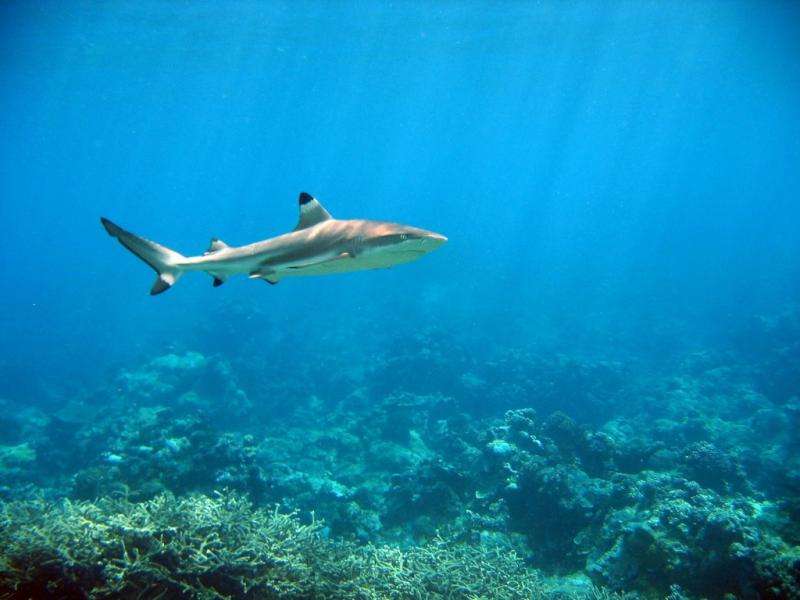Humans are changing ocean ecosystems in fundamental and surprising ways

Humans are changing the 'landscape of fear' in oceans in many more ways that previously thought, and the effects of these changes can ripple through ocean ecosystems in a wide variety of surprising ways, research by Dr Elizabeth Madin from the Department of Biological Sciences and colleagues from Simon Fraser University, Canada and the University of California and Florida International University in the United States has found.
Where predators, such as sharks and other big animals, have largely disappeared due to overfishing, for example, changes in their prey's behaviour have led to clear impacts on coral reef ecosystems.
"What we now know is that when predators are removed from coral reefs through overfishing, the behavioural responses of the prey fish alone are enough to fundamentally change what the physical reefscape looks like."
The research collectively shows that as humans continue to change predator numbers in the ocean – by eating them as seafood and changing where they live through climate change – other parts of the ecosystem are affected simply by changing predation risk.
"We are removing predators from marine ecosystems at unprecedented rates, and we are doing so with very little knowledge of the full range of potential consequences," said Dr Madin. "What our work shows is that there are many more consequences, through a fundamentally different pathway, than we've generally recognised up to now. These really need to be considered in conservation and ecosystem management."
"One thing that we can all do to lessen our impact on the oceans is to carefully consider our seafood choices. In particular, we can check web-based seafood sustainability guides to make sure that the seafood we buy in the store and order in restaurants is sustainable – in other words, it doesn't contribute to overharvest or habitat destruction," said Dr Madin.
More information: Elizabeth M. P. Madin et al. "Human activities change marine ecosystems by altering predation risk," Global Change Biology (2015). DOI: 10.1111/gcb.13083
Journal information: Global Change Biology
Provided by Macquarie University



















